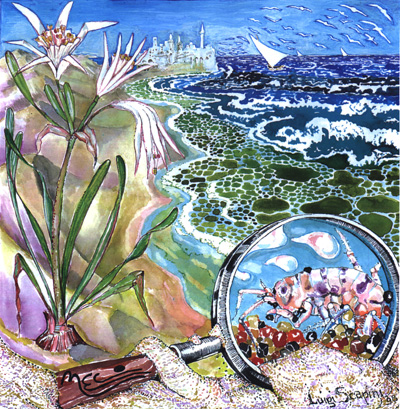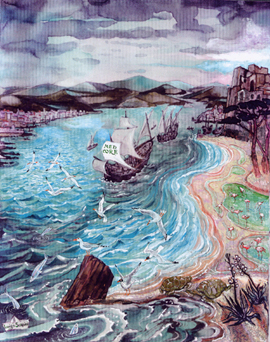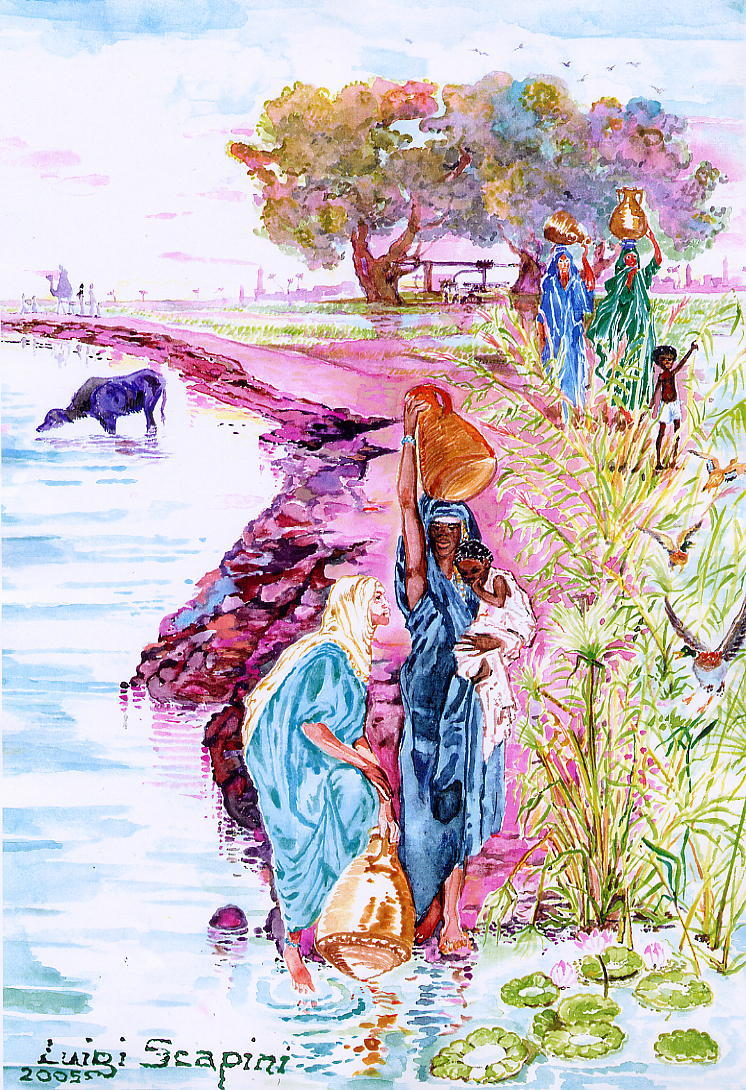Why WADI? - Background history
The WADI project (INCO-CT2005-015226, 2005-2008, VI FP) was developed from two previous INCO-MED projects, taking advantage of good and bad experience:
- the MECO project, IC-CT98-0270, 1998-2001, IV FP
- the MEDCORE project, ICA3-CT2002-10003, 2002-2005, V FP
|
MECO focused on selected sandy beaches across the Mediterranean coasts at Restinga-Smir (Morocco), Nefza-Zouãara beach (Tunisia), Kneiss Islands (Tunisia) and the sandy beaches of Malta.
The MECO approach was:
- the identification of impacts
- the choice of indicators of impacts
- the development of management plans for the sites
- the proposal of the management plans to stakeholders
A number of issues were tackled within the MECO project:
- issues of scales: different elements of the system have different scales (e.g. the dunes, the shoreline, the human recreation activities, the birds, the plants, the burrowing animals, etc.); beaches are open systems, influenced by marine and inland factors;
- issues of integration: between disciplines (socioeconomy, geography, biology), between scientists and environmental managers, between the international teams;
- issues of communication: a MECO manual (2002) presented the tecniques and results using a simple scientific language; meetings with stakeholders were held to present the results and propose the management plans developed by the project.
At the end of the project a Manual was produced where the Partners described the results obtained and the methodologies developed in the framework of the MECO project.
MEDCORE focused on selected coastal areas related to rivers across the Mediterranean coasts at Oued Laou (Morocco), Bouterfess-Berkoukech and Ichkeul (Tunisia), Rosetta Nile branch (Egypt), Ombrone River (Italy), Segura River (Spain) and sandy beaches of Crete (Greece).
A lesson learnt: beaches are open systems and should be studied and managed as open systems.
The MEDCORE approach was:
- the identification of trends and impacts and the development of early warning indicators of environmental quality changes
- the identification of links between compartments and development of evolutive scenarios
- the definition of guidelines and ecological criteria for a sustainable management and development of the areas
- the proposal of the strategies and criteria developed to managers and planners.
The following issues were addressed within the MEDCORE project and strategies were developed to resolve the issues:
- issues of scales: MEDCORE focused on coastal environments and the influencing zones from river catchment to the sea - the limits of the areas were defined functionally - ideally, the whole Mediterranean basin was the spatial scale of MEDCORE;
- issues of integration: MEDCORE aimed at linking elements and compartments and adopted an interdisciplinary integrative approach;
- issues of communication: the dissemination of MEDCORE results targeted scientists (international level), environmental managers (national and regional level) and the local populations (educational level): International meeting "From watershed to the sea: interactions and changes" (held in Florence, November 2005 - Abstracts and Proceedings); exhibition "Domestic Mediterranean" and educational materials (available at request: felicita.scapini@unifi.it).
|
By taking advantage of the good and bad experience gained from the previous projects, WADI chose the following strategy:
- the flow of communications was down-top (participatory) to make scientific research useful to the solution of real problems
- the project focused on the benefits from water body to local population and aimed at sustaining and enhancing them
- the spatial dimension was local (study site), national (the partner country) and international (Mediterranean)
- the temporal dimension has gone beyond the time lapse of the project, taking advantage from past knowledge - in the short, medium and long term
A lesson learnt: impacts are trends of loss of sustainability Þ understanding the present and the past to forecast and help the future.
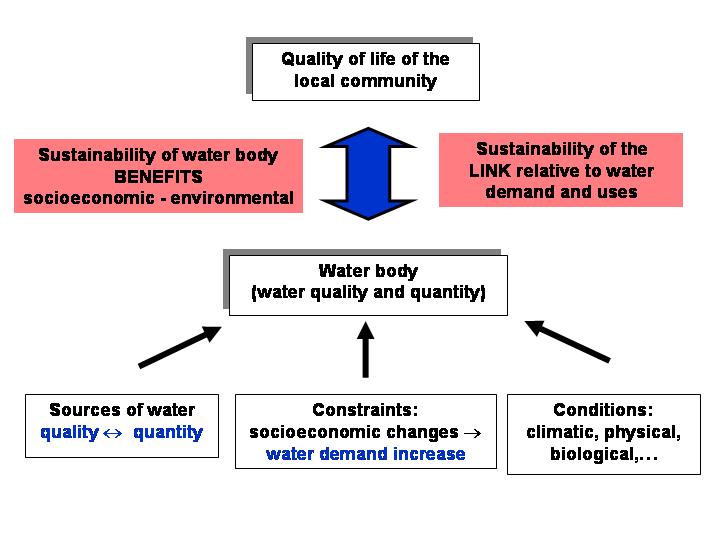
In synthesis the WADI approach was:
- Meeting stakeholders starting from local people
- Listening to their problems with relation to water demand and impacts to the environment
- Conducting focused research on the study sites
- Developing a conceptual framework of the overall situation at each study site
- Building quantitative system descriptions for the study sites
- Assessing impacts on different compartments
- Developing alternative desirable socioeconomic and ecological scenarios
- Selecting the most appropriate management plans
Who were the stakeholders ?
WADI participants chose a number of study sites across the Mediterranean coastal areas, in Spain, Italy, Morocco, Tunisia and Egypt, and identified the stakeholders for water issues at each site.
Stakeholders identified were: the local population and their traditional representatives, local farmers, breeders, fishermen and their representative, agriculture cooperatives, fish traders, irrigation drainage water authorities, industrial firms, tourism agencies, non governmental organisations locally operative, local and governmental authorities (Departments/Agencies of Interior, Fishery, Agriculture, Waters and Forests, Infrastructures, Environment)
WADI payed a special attention to the weak stakeholders, who are often not officially represented: women and children. We wanted to listen and focus to their problems.
WADI took into account the rights of the natural environment for the benefit of everybody, included the future generations.
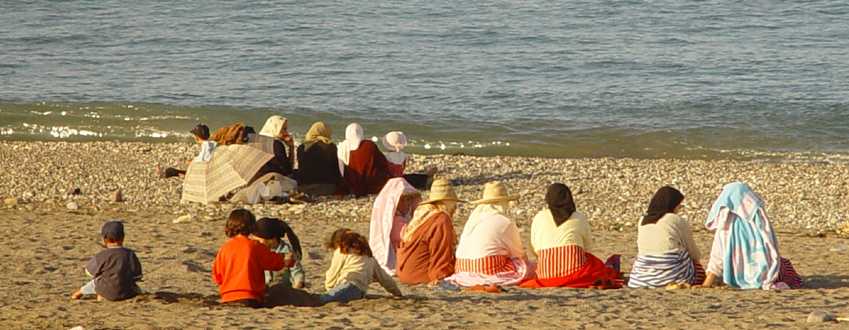
"waiting for new scenarios" (by Daniele Della Valle)
Ultimo aggiornamento
13.02.2026

